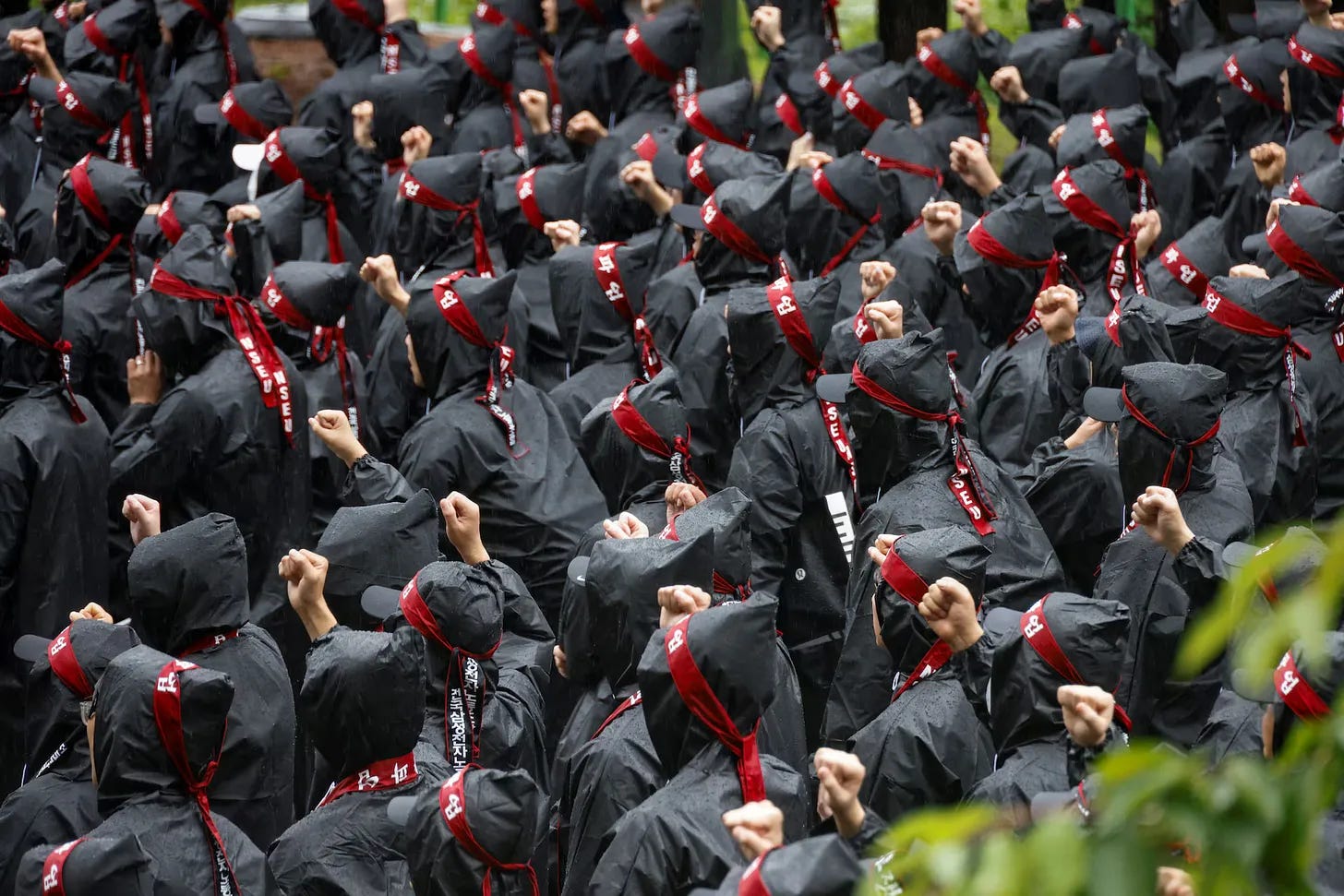Strike at Samsung Enters Second Week
Over 6,000 Workers Demand Pay Hike, Paid Leave and Compensation

The strike called by the National Samsung Electronics Union (NSEU) last Monday completed one week on Sunday 14 July, with the continued participation of thousands of workers at a Samsung Electronics factory near Seoul.
On Monday, NSEU organized another rally with hundreds of workers in front of one of the factory gates. The workers participating in the rally carried banners and posters with their demands and shouted slogans inviting other workers in the company to participate in the strike, with the objective of disrupting production and pressuring management to listen to demands.
The first ever strike at the world’s largest memory chip maker and South Korea’s largest company was called following the failure of the management to engage with the NSEU’s demands for a 5.6% increase in the base wages of all the workers, paid leave on the union’s foundation day, and compensation for all strikers, past and present.
According to the NSEU, more than 6,000 workers are participating in the strike. Since most of the striking workers come from Samsung’s semiconductor manufacturing unit, the strike has impacted production significantly, despite earlier claims made by management denying any impact. During the rally on Monday, NSEU claimed that Samsung would not be able to meet delivery deadlines on certain aspects of production due to the strike.
So far the management has refused to engage with the workers, and instead has threatened them with replacement if the strike continues. A lot is at stake for Samsung. It is suspected that the strike, if prolonged, could impact Samsung’s overall global leadership in the chip-making industry, and benefit its competitors.
NSEU has announced another rally of striking workers on Tuesday, in an attempt to increase the workers’ participation in the strike.
NSEU has a membership of around 30,000, or 24% of all workers at Samsung Electronics. The union organized a day-long strike in June as a warning to the company, as negotiations have been ongoing for months without success. In order to reach a deal, the NSEU even reduced its earlier demands of a 6.5% raise to a 5.6% raise in wages. Management has refused to budge from its initial offer of a 5.1% hike, which was imposed on non-unionized workers earlier.
For decades after its formation, Samsung refused to allow any unions for its workers. Samsung management has a history of union busting. It was forced to end its “no union policy” only after prolonged pressure by the workers’ movement a few years back.
Since their formation, unions have opposed the one-sided policy of imposing annual wage increases on company’s workers and demanded consultations. Last year, as part of the growing resistance to Samsung’s policies, the NSEU organized different actions to manifest their discontent with the 4.1% wage increase imposed on workers without consultation.
The current strike was originally for three days. However, after management refused to listen to the demands, on 10 July the NSEU decided to go on an indefinite strike.



